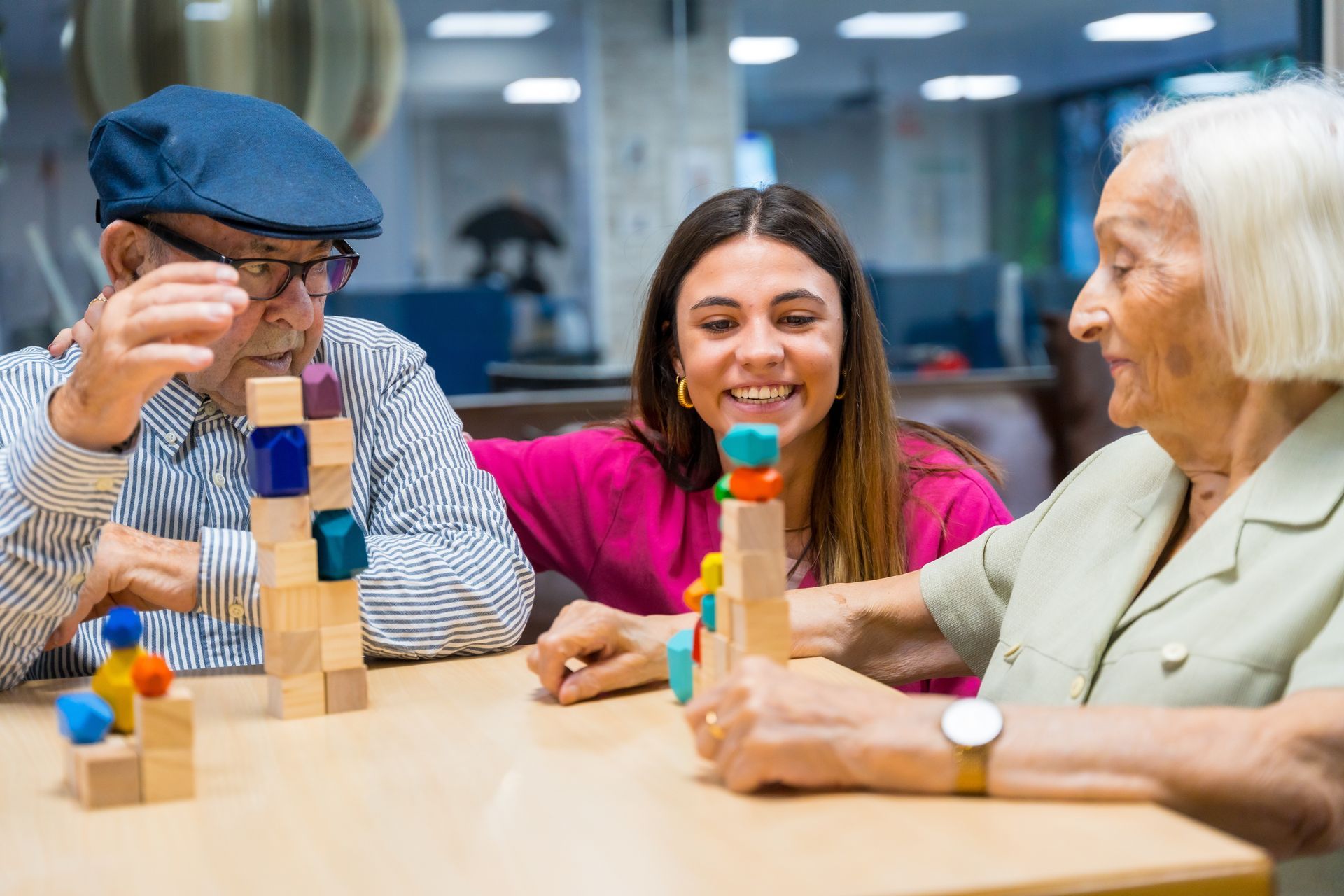BLOG
Understanding Behavioral Changes in Dementia Patients
Dementia is a complex condition that affects millions of people worldwide, impacting both cognitive abilities and behavior. One of the most challenging aspects for caregivers is managing behavioral changes in dementia patients. These changes can be sudden and unpredictable, causing significant emotional strain on the patient and their loved ones. To provide the best care, it's essential to deeply understand how dementia affects behavior and the strategies that can help manage these shifts.
Behavioral changes in dementia patients often stem from the degeneration of brain cells, leading to confusion, frustration, and disorientation. As the condition progresses, patients may exhibit a wide range of behaviors, from aggression to withdrawal. Caregivers must have the knowledge and tools to handle these changes with compassion and patience.
Understanding Early Behavioral Changes in Dementia
The first signs of behavioral changes in dementia often appear subtly. Patients may start to forget routine activities or exhibit mood swings. These early signs are crucial to recognize, as timely intervention can slow down the progression of symptoms. Memory lapses, irritability, and difficulty completing daily tasks are common in the early stages.

Caregivers should monitor these signs closely. Changes in social behavior, such as avoiding conversations or becoming easily upset, are often early indicators. Understanding dementia in its early stages allows caregivers to take proactive measures to improve the quality of life for the patient. Early intervention can also provide emotional relief to family members, as they can prepare for the challenges ahead.
It's important to remember that each patient's experience with dementia is unique. Behavioral changes may vary, depending on the type of dementia and the individual’s overall health. Personalizing care approaches during the early stages can make a significant difference in managing the condition effectively.
Handling Aggression and Agitation
Aggression and agitation are among the most distressing behavioral changes in dementia patients. These behaviors can be triggered by confusion, fear, or physical discomfort. For caregivers, understanding the root causes of aggression related to dementia is key to defusing these situations. The goal is to minimize triggers and create a calm environment that helps the patient feel safe.
Strategies to handle aggression include using a soft tone of voice and offering simple explanations. Avoid arguing or correcting the patient when upset, as this can escalate the situation. Instead, redirect their attention to a familiar and comforting activity or place. Identifying and addressing physical discomfort, such as hunger, pain, or fatigue, can also help reduce agitation.
Regular routines and familiar surroundings play an essential role in calming aggressive behavior. Structure and predictability help reduce anxiety in dementia patients, making them feel more secure. Caregivers should strive to maintain consistent daily schedules to prevent potential triggers.
Managing Repetitive Behavior
Repetitive behaviors, such as asking the same question multiple times or repeating specific actions, are common in dementia patients. These actions often stem from anxiety or an attempt to regain a sense of control. While these behaviors can be frustrating for caregivers, it's important to understand that they are a coping mechanism for the patient.
When managing repetitive behaviors, caregivers should focus on patience and reassurance. Instead of correcting the patient, provide gentle responses and, if possible, redirect their attention to another task. Maintaining a calm demeanor is crucial, as any sign of frustration from the caregiver can worsen the patient’s anxiety.
Identifying the underlying cause of the repetitive behavior can help address it in some cases. For instance, repetitive questions may signal the patient’s insecurity or uncertainty about their surroundings. Offering clear and consistent answers can ease these feelings and reduce the frequency of the behavior.
Understanding Sleep Disturbances from Dementia
Sleep disturbances are a common issue among dementia patients. As the disease progresses, patients may experience insomnia, restless sleep, or frequent nighttime wandering. These sleep issues can be exhausting for the patient and their caregivers, making it essential to address them effectively.

Establishing a consistent bedtime routine is one of the first steps in managing sleep disturbances. This routine can include calming activities like reading, listening to soothing music, or dimming the lights. Maintaining a regular sleep-wake cycle helps regulate the body’s internal clock, reducing the chances of nighttime wakefulness.
Additionally, caregivers should ensure the patient’s sleeping environment is comfortable and free from distractions. Limiting caffeine intake and encouraging daytime activities can also promote better sleep. When sleep disturbances persist, consulting a healthcare professional for guidance may be necessary.
Navigating Mood Swings and Emotional Outbursts
Dementia patients often experience mood swings, ranging from sadness and withdrawal to anger and frustration. These emotional outbursts can be unpredictable, making it challenging for caregivers to respond appropriately. Understanding dementia in this context means recognizing that these changes are a symptom of the disease, not a reflection of the patient’s personality.
When faced with emotional outbursts, caregivers should remain calm and empathetic. Offering reassurance and validation can help de-escalate the situation. Mood swings are often triggered by environmental factors such as noise, overstimulation, or physical discomfort. Identifying and minimizing these triggers can prevent future outbursts.
Engaging patients in activities that promote relaxation and emotional well-being is also helpful. Art, music, and light physical exercises can help elevate their mood. By creating a soothing atmosphere, caregivers can help stabilize emotional fluctuations and improve the overall quality of life for dementia patients.
Encouraging Social Interaction and Engagement
Social isolation is a significant concern for dementia patients, as it can worsen behavioral symptoms like depression and anxiety. Encouraging social interaction is key to improving mental and emotional well-being. Patients who engage with others, even in simple conversations, often show reduced anxiety and fewer behavioral issues.
Caregivers can promote social engagement by involving patients in group activities or connecting them with family and friends. These interactions stimulate cognitive functions and provide emotional comfort. Understanding dementia also means recognizing the importance of familiar social environments, as patients often feel more secure when surrounded by known faces and places.
While large gatherings can be overwhelming for some patients, small, intimate interactions can have a positive impact. Caregivers should tailor social experiences based on the patient's comfort level, focusing on activities that promote happiness and relaxation.
Understanding Dementia and Providing Compassionate Care
Behavioral changes in dementia patients can be overwhelming, but with the right strategies, caregivers can manage these shifts effectively. Recognizing early signs, handling aggression, managing repetitive behaviors, addressing sleep disturbances, navigating mood swings, and promoting social interaction are all essential parts of dementia care. Creating a supportive and calming environment can improve the patient's quality of life and reduce stress for caregivers.
At Assured Senior Living, we specialize in providing compassionate, personalized care for dementia patients. Our dedicated team understands the unique challenges of dementia and is committed to offering the best support for patients and their families. Contact Assured Senior Living today to learn more about our services and how we can help.















